Esko.ai FAQ - Here to answer all your questions.
If you're new to Esko.ai this, section is will help you learn more about the platform and its features.
Frequently Asked Questions
Follow these steps to get started:
1. Go to www.esko.ai
2. On the navigation bar click Sign up
- 3. It will open a new tab where you can register a new account
- 4. You can Sign up with Google or Create account with Email
If you got an email invitation to join someone's organization at Esko.ai and you want to join the organization with your existing account, follow the next instructions:
Modify your first name and last name if needed and click Finish Signing Up. Now you are ready to use the tool under the organization you have been added.
You can check the organization settings by clicking the profile icon on the upper right corner and selecting the name of the organization from the menu.
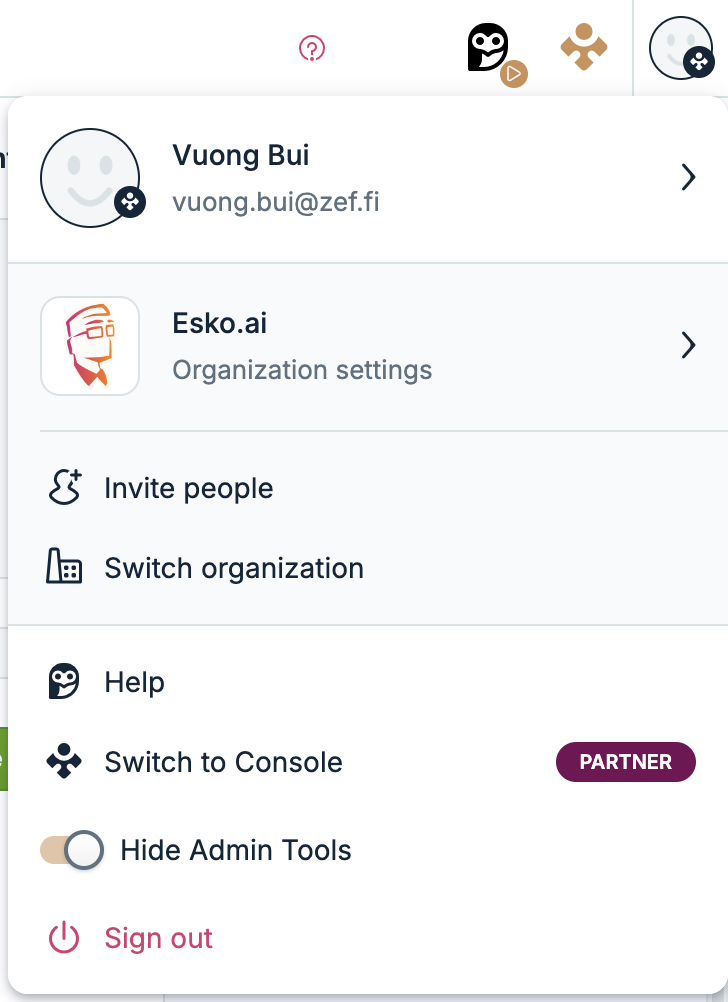
You can share a survey with your colleague if she or he has an account in Esko tool already.
1. Pick a survey you'd like to share with your colleague.
2. At the bottom of the page you see Collaborators section.
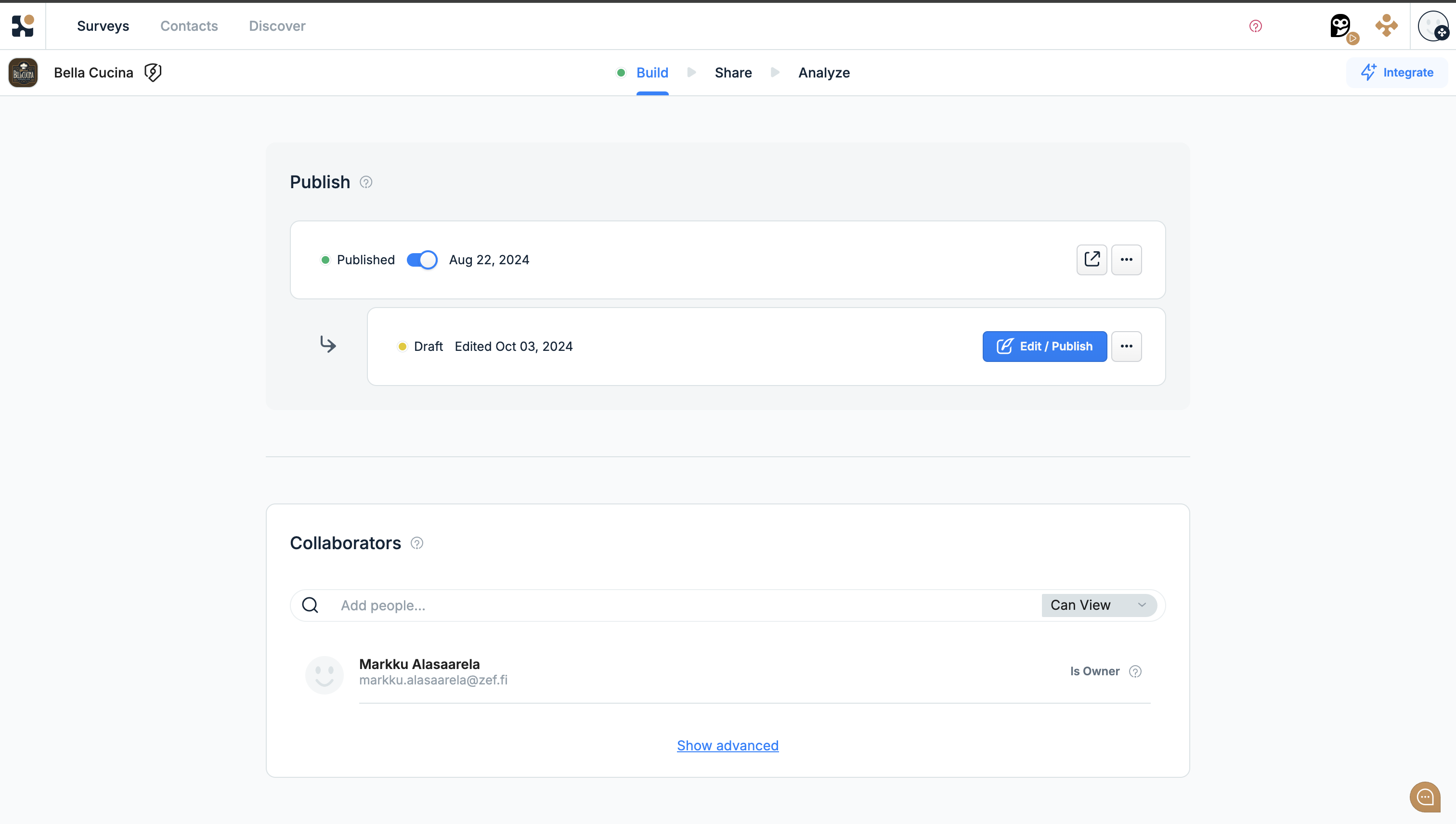
3. Choose whether your colleague can edit or just view the survey.

4. Select the colleague you'd like to share your survey with by typing his or her email address.

Can View = Preview and share survey either via a link or emailer. Has an access to the analyze part of the survey
Can Edit = Preview, share and analyze the survey. Also can edit the survey.
Please notice that if you give ownership rights to your colleague, she or he will be only one who can edit the rights after that.
Owner can delete the survey and add or remove collaborators.
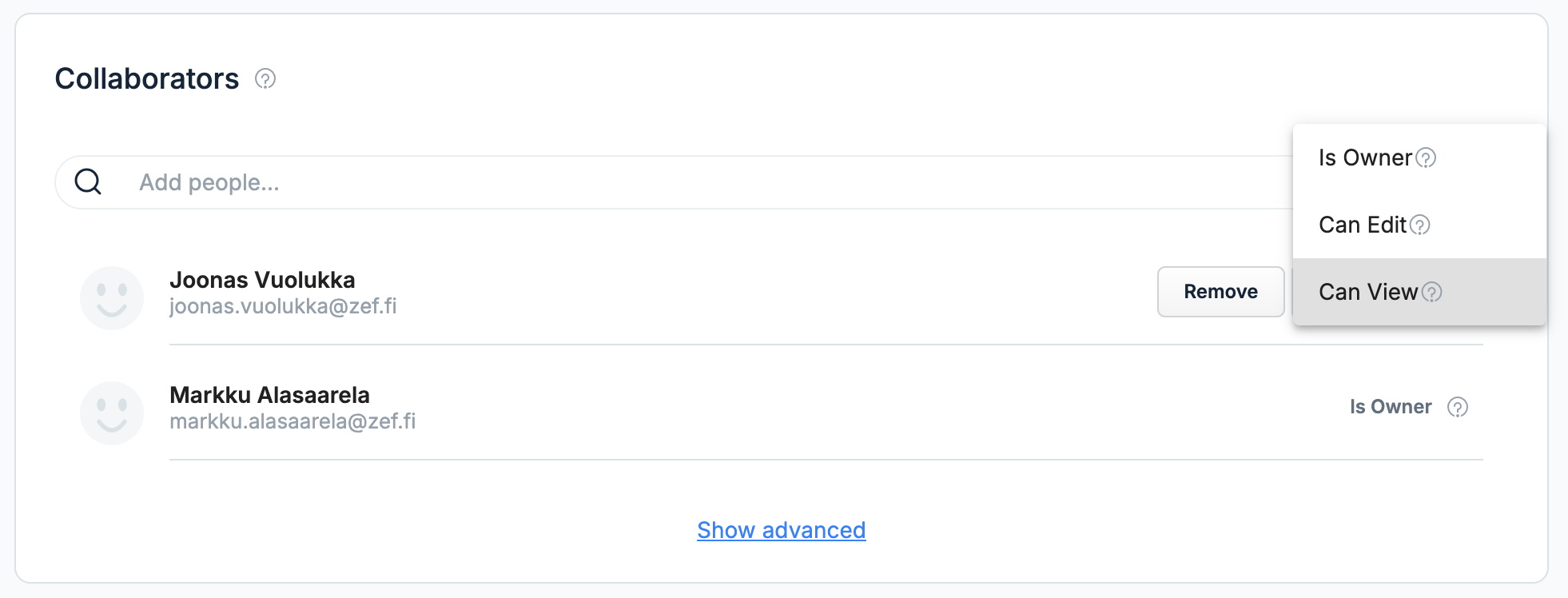
You can get a new password by clicking the text "Forgot password?".
You will get an email with a reset link within a few minutes. Click the reset link in the email and create a new password.
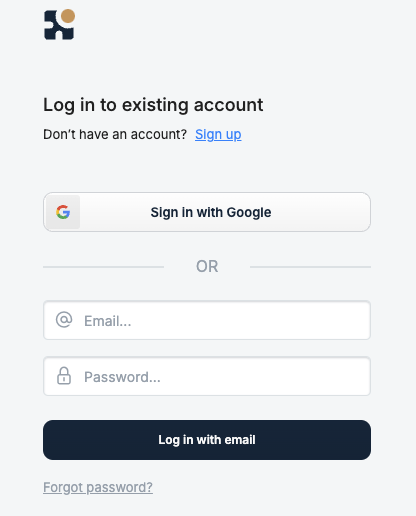
You can automate refilling SMS quota by selecting Enable Auto-refill in SMS section of Plans & Billing tab. SMS quota can be used by all users in your organization.
Upgrading your license plan can be done by logging in to your account and then opening the Organization Settings

Once you're in the Organization Settings, go to Plan & Billing tab
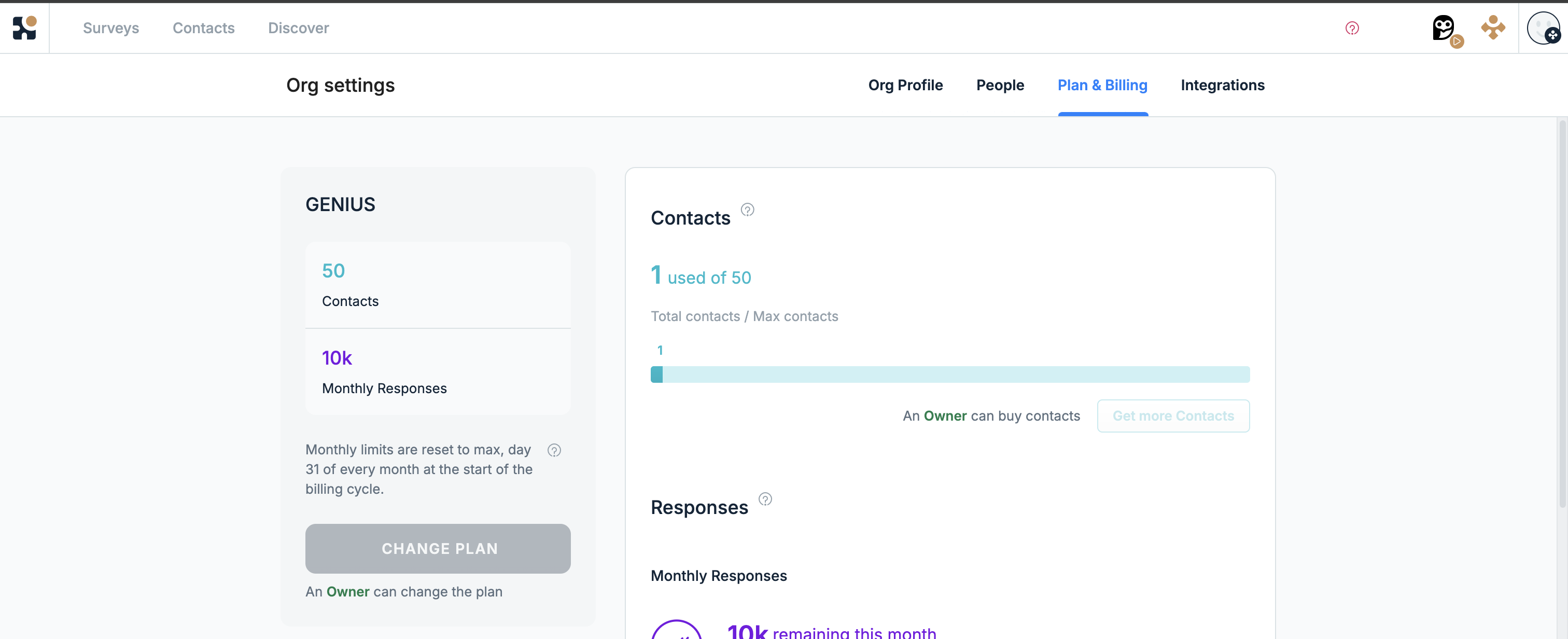
Here you'll see your Total Contacts, Responses, SMS, and Billing details.
You can change your license plan by clicking CHANGE PLAN
(note that only the Owner of the organisation can change the license plan)
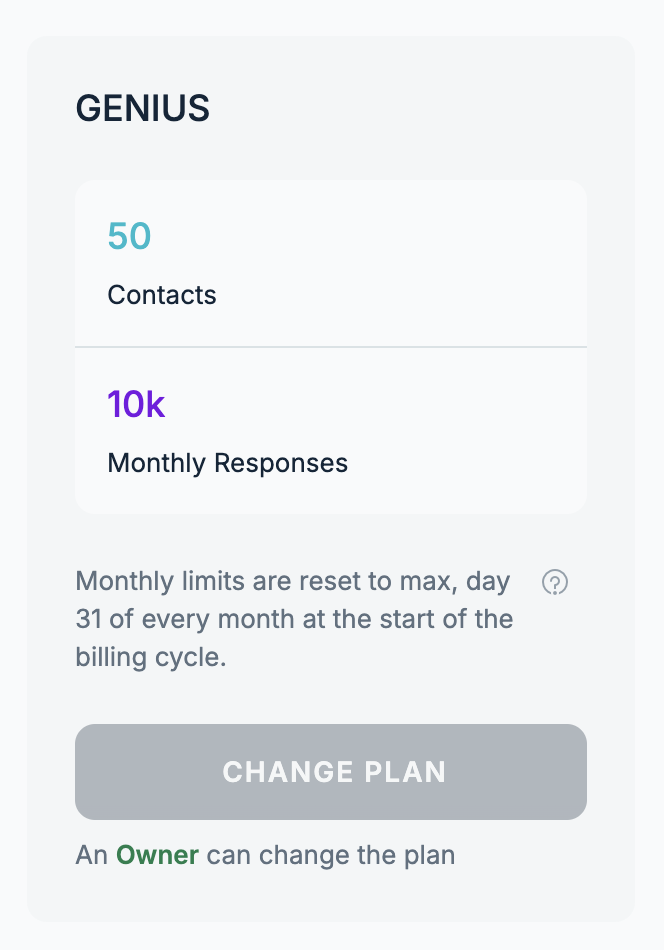
Terminating your license can be done by changing the license plan to Free.
1. Create a new survey
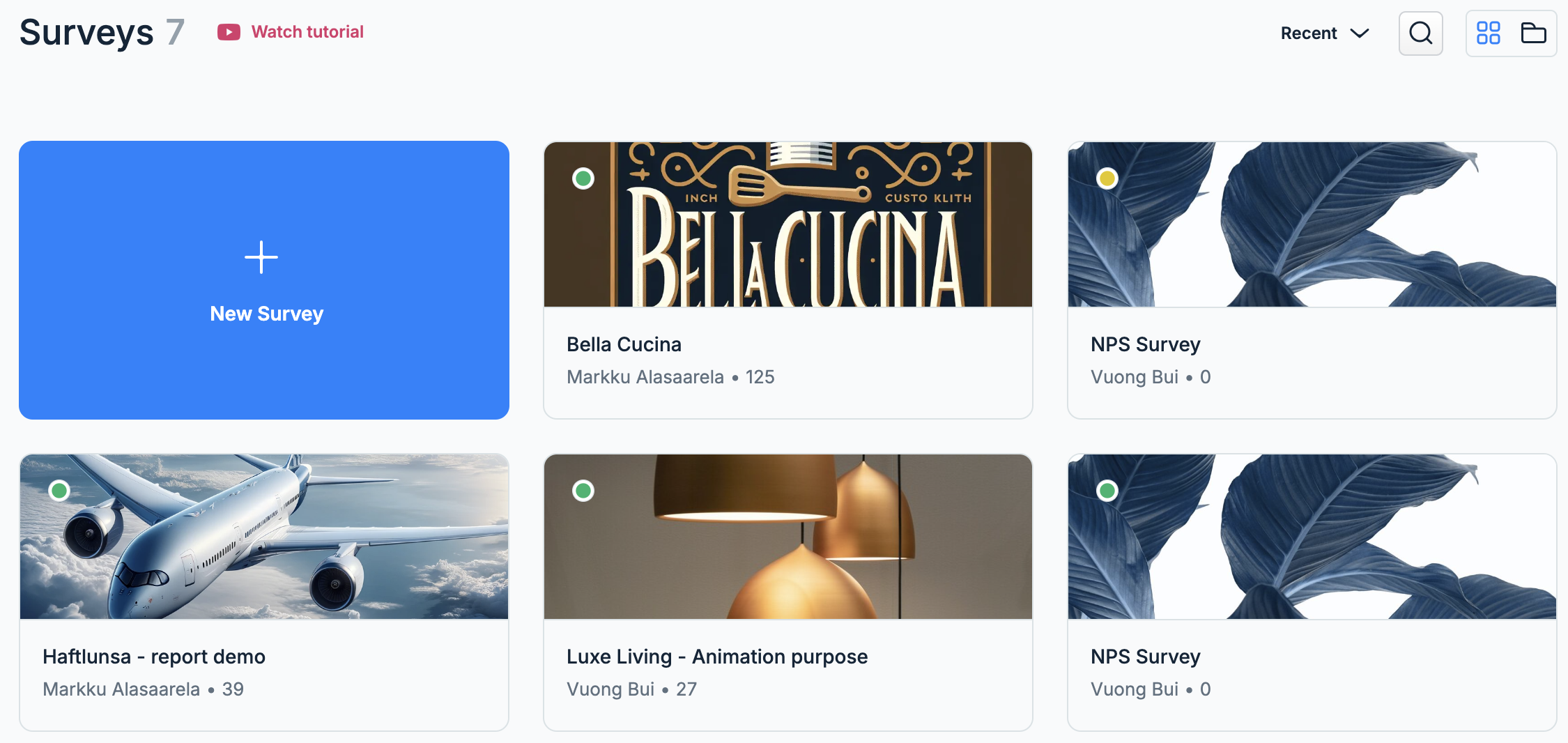
2. You see all the templates from the left tab
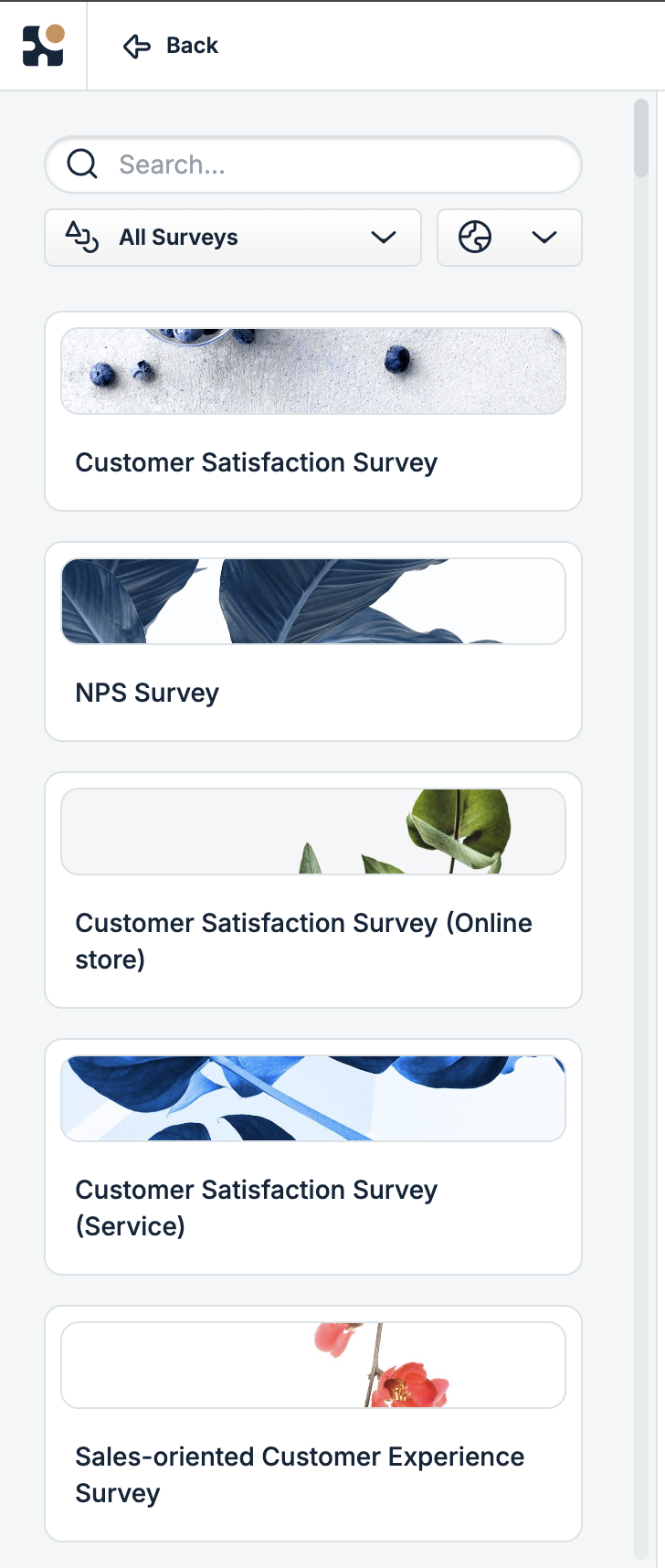
3. You can also search for the template, filter the template types from the filter or even change the template language
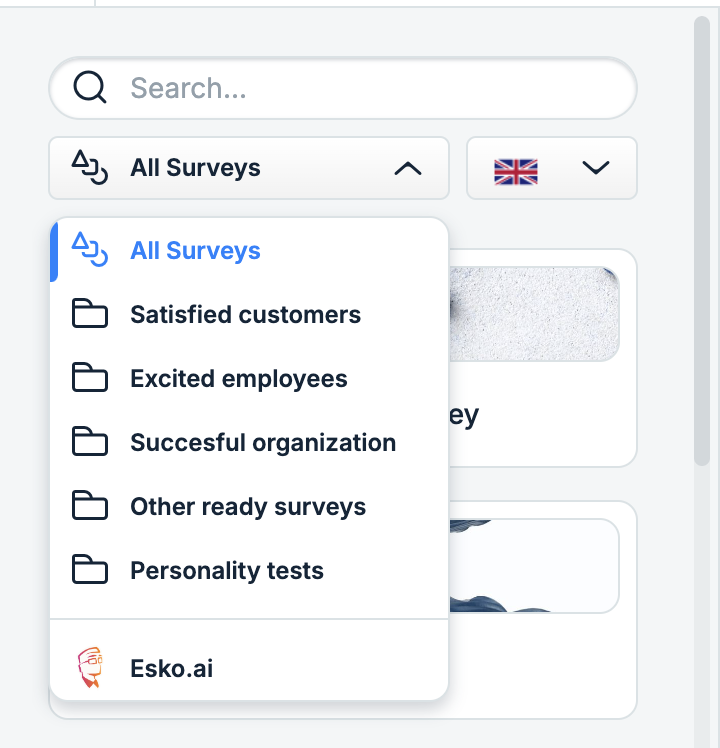
4. Preview the template by clicking the templates from the left tab.
5. To use the template select the wanted survey and click Use this template from the upper right corner of the page.

After the desired survey template is selected, you can make changes to it in the builder and use it however you like.
1. Open the survey builder. On the left tab under the Questions you can see all the questions and question groups of the survey.
2. You can move them by holding and dragging the question or question groups to the wanted location
Notice that you can move questions from different question groups by dragging & dropping the question to the desired question group. In the same way, you can move a question from a question group to be as an individual question without a group.
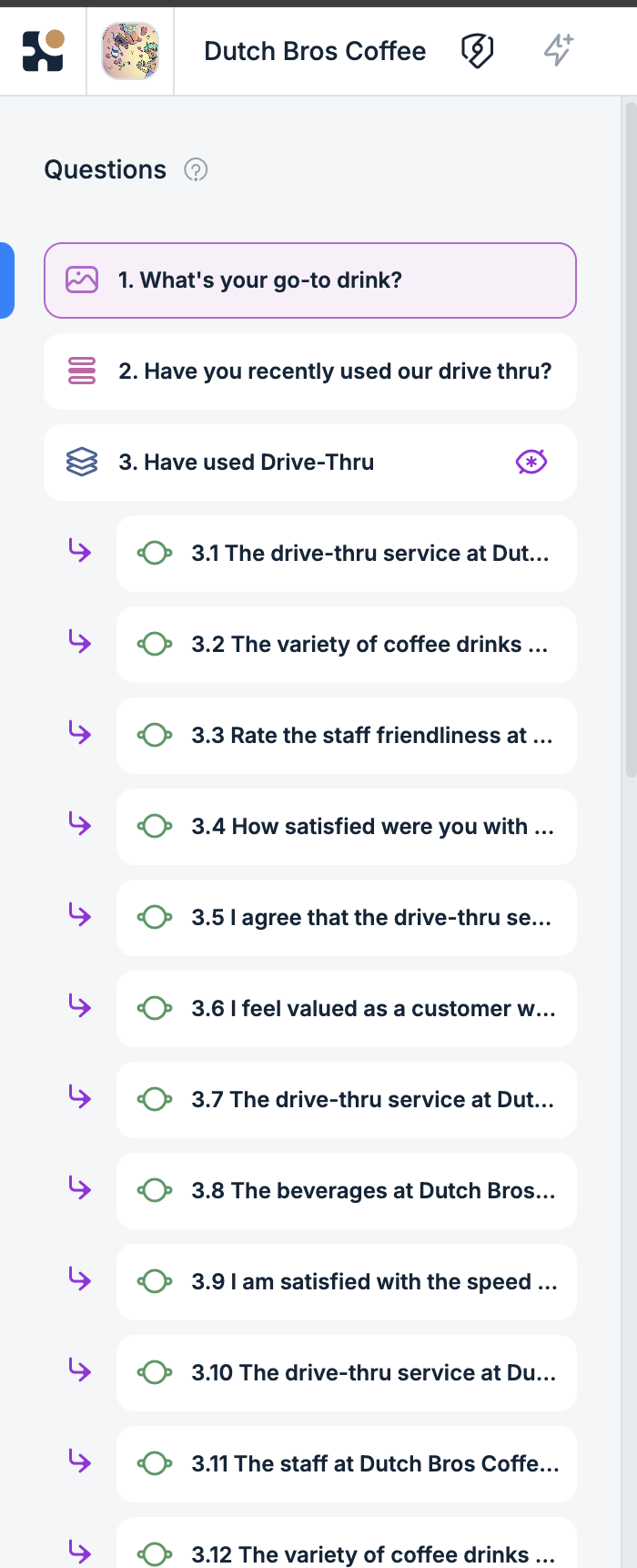
Sometimes, it takes a little while for recent changes to be reflected and updated in a survey that is online.
However, while the tool saves all the changes automatically, you still have to review and update your survey for the changes to take effect.
This is done in the builder, where you'll find the Test & Publish button.
Q: What is response bias?
A: Response bias occurs when survey participants consciously or unconsciously answer questions in a way that doesn’t reflect their true thoughts or feelings.
Q: Why is recognizing response bias important?
A: Recognizing response bias is crucial because it can distort survey results, leading to inaccurate insights and poor decision-making.
Q: How can response bias affect survey outcomes?
A: Response bias can skew survey outcomes by over-representing certain opinions while under-representing others. For example, if participants feel pressured to give positive feedback, the results might show higher satisfaction levels than actually exist, leading to misguided strategies based on faulty data.
Q: How can response bias be minimized?
A: To minimize response bias, you can carefully design survey questions to be neutral and avoid leading language. Additionally, using anonymous surveys can help reduce social desirability bias, as respondents may feel more comfortable providing honest answers without fear of judgment.
To do this, they use various data collection methods, including:
- - Monitoring behavior
- - Traditional and digital surveys
- - External data sources
Common Survey Challenges
Many of us have either participated in surveys or helped design them. But common questions arise when creating effective surveys:
- - How many questions should a survey include?
- - How do you formulate clear and meaningful questions?
- - How can you ensure your survey yields high-quality data?
Tips for Building a Successful Survey
To help you answer these questions, we’ve compiled our best tips. By following these guidelines, you’ll be able to design surveys that capture valuable data for informed decision-making.
Explore the rest of the guide to learn how to create successful surveys and gather high-quality data that will drive your organization's strategy.
If you're new to collecting feedback, here are some essential tips to help you get started and ensure you collect accurate data while building trust with your customers:
- - Know your target audience
Understand who your customers are and tailor your questions to them for relevant insights.
- - Explain why their feedback matters
Let customers know how their feedback will be used and why it’s important for your business.
- - Highlight customer benefits
Make it clear that providing feedback will ultimately benefit them—whether through improved products, better service, or other enhancements.
- - Stick to one topic at a time
Focus each question on a single subject to avoid overwhelming or confusing your customers.
- - Keep it short and simple
Respect your customers' time by keeping surveys brief and to the point.
The Bottom Line
Respect your customers' time, be clear, and maintain trust throughout the feedback process. When you prioritize these principles, you’re more likely to receive honest and valuable data that can make a real difference in your business.
1. Pick a survey you want to edit and go to Design tab, you can access Design Bot from the left side

2. Type a URL of the website and Design Bot will access the brand of the company
3. Design Bot will suggest the font, colour, logo and background from the URL you used
Please note that Design Bot may not be able to access all websites due to varying security protocols and protection levels of each site. This ensures we respect the privacy and safety standards of different organizations.
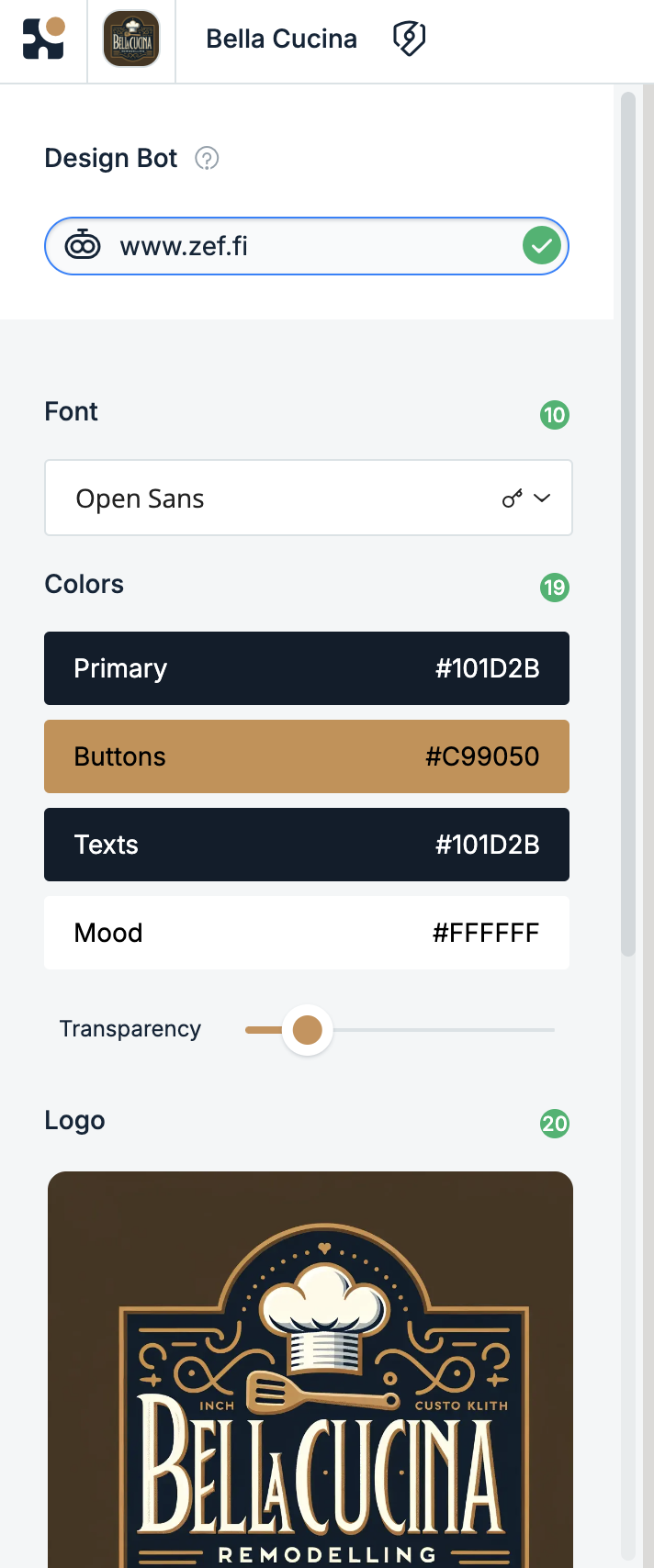
Go to the Design tab and scroll down the sidebar on left side to see the Background section.
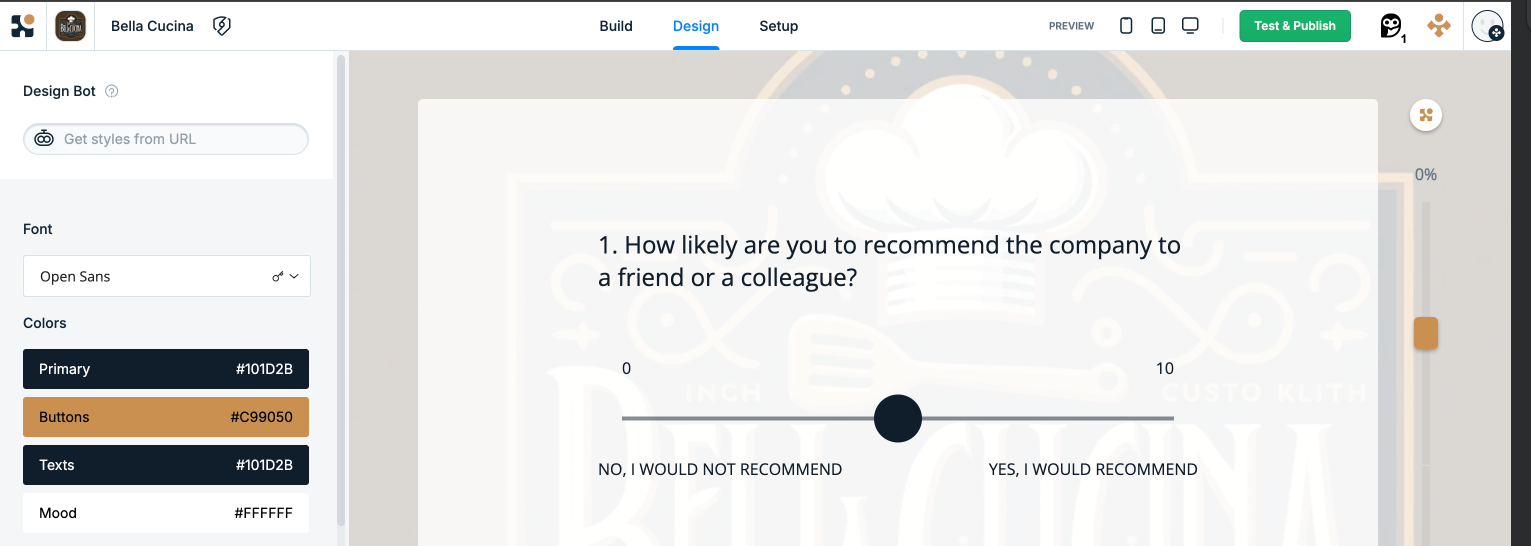
Hover over the Background section to see a "Click to add background" text and click it.
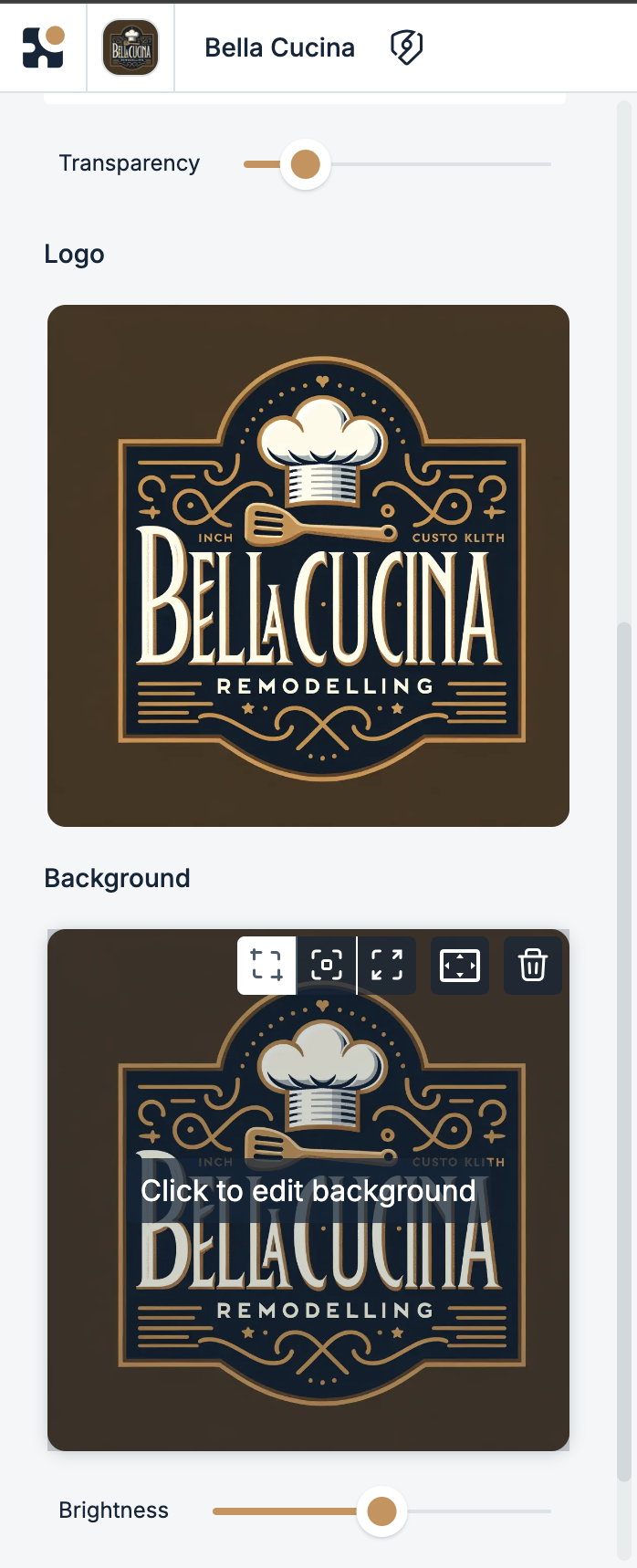
From the top, you can select from where you want to upload the picture. There are three options for that: Search option searches images from our database provided by Unsplash. Write a keyword to the Search for photos on Unsplash and select a picture you want to use
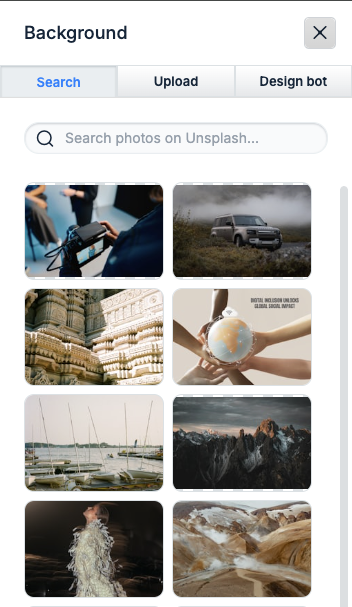
You can also upload an image from your computer by clicking Upload.
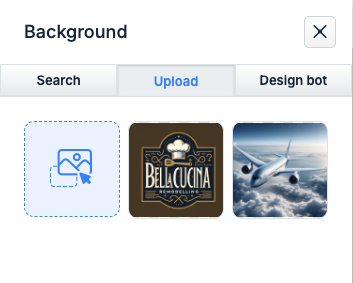
You can also use our Design Bot by writing a URL to the search box and let the our Design Bot find the images from website automatically.
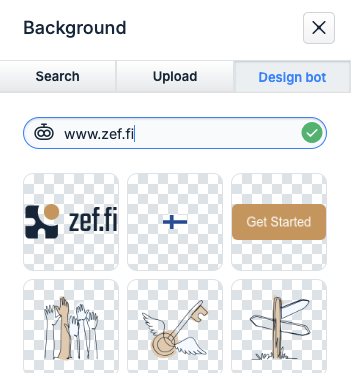
After you have selected or uploaded the background picture and returned to the builder, You can, for example, modify how the image is placed (Cover, Fit, Stretch) and specify the alignment. You can delete the image by clicking on the trash bin (Delete). You can also edit the Brightness and Blur by moving the sliders.
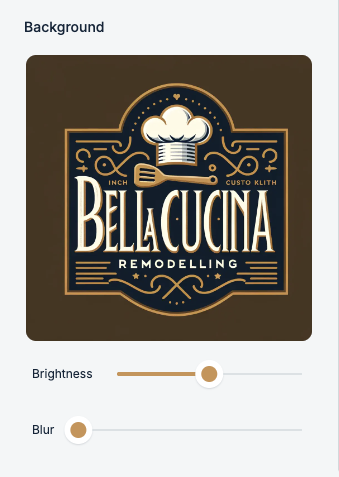
Yes. When a survey has different language versions, a language card is added to the Analyze section.
By selecting a language, only the data is shown that is collected with the chosen language version.
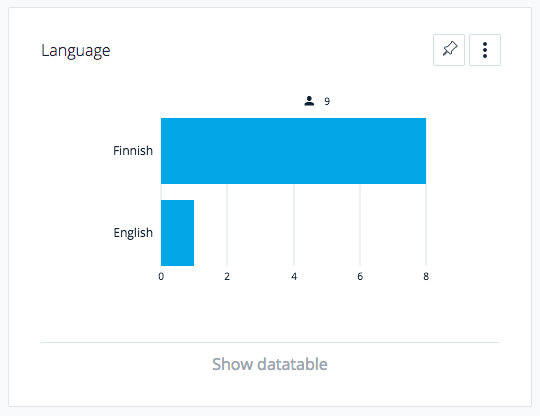
An outcome is something that the respondents see after they have answered all of the questions. A personality test usually has 3-5 different outcomes, defined by how the respondent has answered the questions. Outcomes are basically the results a person gets by taking a survey.
